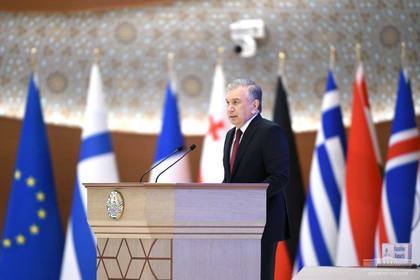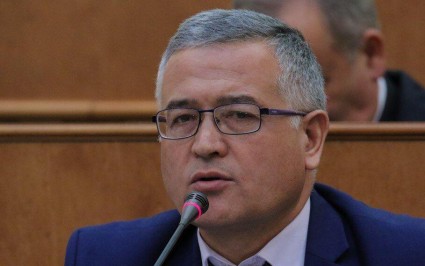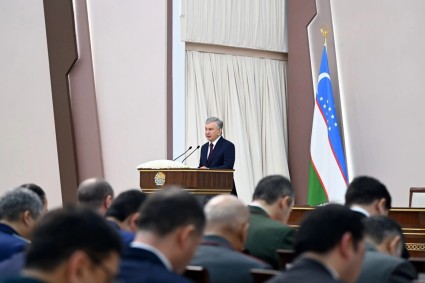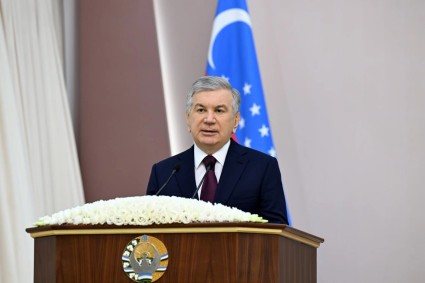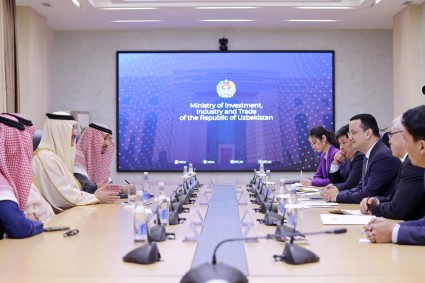President Shavkat Mirziyoyev made opening remarks in the 32nd Annual Meeting of the Board of Governors of the European Bank for Reconstruction and Development (EBRD) in Samarkand on Wednesday.
In his remarks Shavkat Mirziyoyev outlined important areas of cooperation with international financial institutions, including the EBRD.
"Firstly, on the basis of an integrated system, we will strive to improve the investment and business climate in the country and create even more favorable conditions for investors. Council of Foreign Investors has been set up to this end under the President of Uzbekistan which would become a decisive link in establishing a direct dialogue with foreign investors, jointly developing mutually beneficial projects and long-term strategies.
Undoubtedly, this dialogue platform, organized together with the European Bank for Reconstruction and Development, will be a new experience, create new opportunities, and promote new approaches to the implementation of our reforms,” he said.
Mirziyoyev stressed that “wherever investors are in our country - in 14 provinces, 208 districts and cities, as well as in all of Uzbekistan’s diplomatic missions - they will be provided with the necessary assistance and services through single window principle of the Ministry of Investments, Industry and Trade.
It also became known that for the first time in Uzbekistan’s history an international commercial court will be established before the year-end together with international experts.
“Secondly, we will accelerate the further liberalization of the markets for goods, services, capital and labor,” the President said.
According to him, in order to join the global production chains, the authorities of Uzbekistan have taken important steps to join the World Trade Organization. He said he was convinced that this year "we would achieve significant results in this area."
"Thirdly, reducing red tape and countering corruption will continue to be the focus of our state and society.
We will consistently continue the initiated administrative reform and introduce a compact and efficient governance system that supports people and businesses, providing them with quality services, he concluded.

